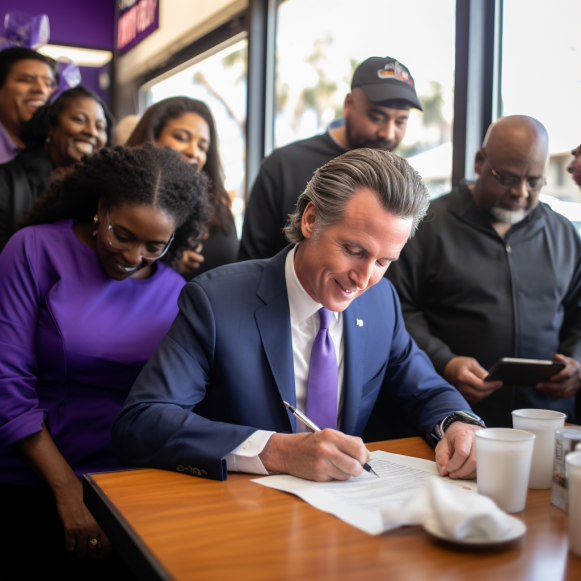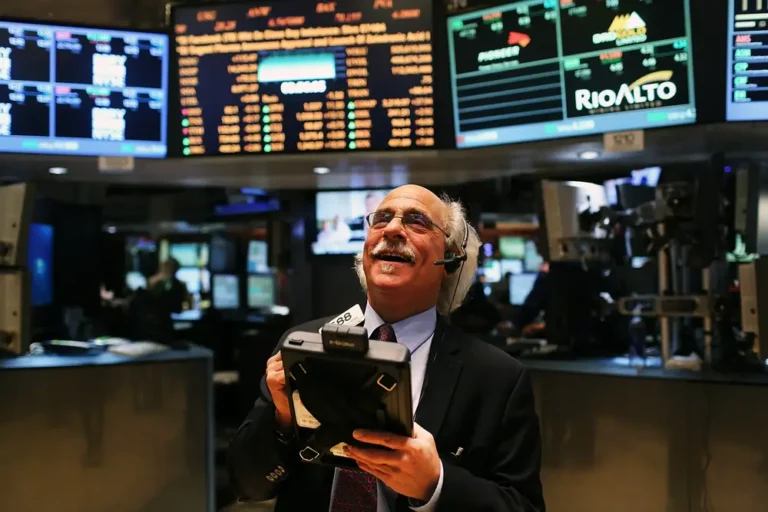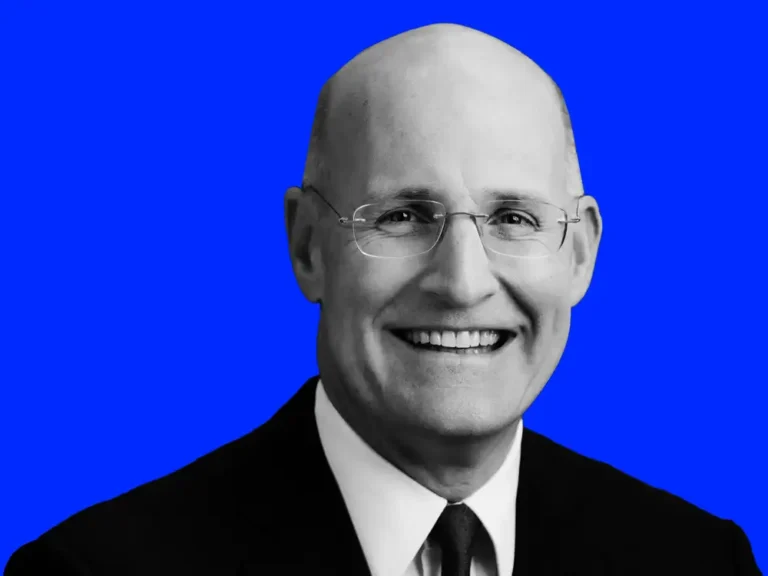In LA, Gov. Newsom signs bill boosting fast-food worker wages, conditions

Pasadena’s Assemblyman Chris Holden sponsored a bill making fast-food corporations more liable for violations of state workplace laws. The governor signed it on Thursday amid pushback from business groups.
LOS ANGELES (AP) — Gov. Gavin Newsom signed long-awaited legislation on Thursday, Sept. 28, raising fast-food workers’ hourly wages to $20 while creating a statewide panel to develop baseline labor standards on wages, hours, and workplace conditions.
In an era of rapidly rising cost-of-living increases and economic disparities, supporters say Assembly Bill 1228’s creation of a California Fast Food Council, combined with a raise for an estimated half a million restaurant workers in the state beginning next year, is one of the most significant pieces of employment legislation in a generation.
But it was a law that was once on shaky ground, with critics claiming that it could have upended the business model for local restaurant franchises by removing local owners’ autonomy.
Instead, an 11th-hour agreement between labor unions and fast-food corporations put it on firmer footing.
Newsom, who signed the bill in Downtown Los Angeles on Thursday, called it a critical step forward in a state where fast-food workers in California are paid $3 per hour less than comparable service-sector workers and are more likely to live in poverty, according to the bill’s supporters.
“We saw the abuse, we saw the inequities in terms of the wages and the treatment and we realized we had a responsibility to do more,” Newsom stated. “The future begins here.” This is a state that takes pride in not only being on the cutting edge, but also in recognizing that businesses cannot thrive in a failing world. This state is about inclusion, not just growth, and that is the guiding principle.”
Fast food workers in California will have the highest guaranteed base salary in the industry when it goes into effect on April 1. The state’s minimum wage for all other workers is already among the highest in the country, at $15.50 per hour.
Newsom was flanked by bill supporters, including Anneisha Williams, a fast-food worker from Los Angeles; SEIU International President Mary Kay Henry, SEIU California President David Huerta, and Assemblymember and bill sponsor Chris Holden, D-Pasadena.
Supporters of the bill also emphasized the creation of a Fast Food Council, comprised of nine members, tasked with developing minimum wage, working hours, and workplace conditions standards.
According to Holden, the panel, which would be considered a government agency under the law, will include representatives from the fast food industry, franchisees, employees, advocates, one unaffiliated member of the public, and two non-voting members. According to Holden, members would also advise the governor and executive agencies on the health, safety, and employment of fast food restaurant workers.
“For the last decade, California fast food workers, along with workers across the country, have organized, marched, and gone on strike to demand a voice,” said SEIU President Mary Kay Henry. “In the last two years alone, they have staged 450 strikes across the state, emphasizing the importance of fast food corporations treating their employees with dignity.” I am so proud of the Black and Latina women who are breaking down barriers to win big for all communities — white, Black, brown, and Asian.”
According to union officials, the median wage for a fast-food worker in California is $16.31 per hour, but the new law will raise the minimum wage for California’s half a million cooks and cashiers to $20 per hour and seeks to strengthen in the workplace through a statewide the Council, supporters say.
The bill also prohibits a fast-food restaurant operator from retaliating against any employee for participating in or testifying at a council-convened proceeding.
The debate over joint liability was at the heart of previous versions of the bill. According to an earlier analysis, the bill would have required a fast food restaurant franchisor to share with its fast food restaurant franchisee all civil legal responsibility and civil liability for the franchisee’s violations of prescribed laws and orders, or their implementing rules or regulations, before a deal was reached between labor and the industry this month.
Some claimed that it removed the owner’s control over operational decisions such as hiring, employee wages, scheduling, benefits, and workplace standards. According to some, it would have compelled national fast-food corporations to strengthen franchisor control over franchised restaurants.
According to Holden, some franchisees violate employee rights at a much higher rate than establishments owned and operated by the franchisor, and this is often completely out of the franchisee’s control, despite the fact that they are often the ones suffering penalties while employees bear the brunt of flawed franchise models.
On Thursday, Holden expressed gratitude for the agreement, which dropped the law’s joint-liability provision in exchange for an agreement from small business owners, restaurateurs, and franchisees to drop the fight to repeal the law through a referendum in November 2024.
“I want to acknowledge that the fast food franchisees and franchisors, for their willingness to come to the table, the willingness to sit down and, at the 11th hour, help be part of a solution,” Holden stated. “At the end of the day, you want your government to work in a way that allows you to get things done.” Solutions that work, are beneficial to people, and are beneficial to workers.”
On Thursday, some of those interests appeared to be satisfied with the outcome, noting that the alternative could have been worse. They were also bracing for the impact of rising wages.
“While wage pressure is likely as a result of AB 1228, the alternative if AB 257 had been allowed to continue would have been far worse,” said Jot Condie, president and CEO of the California Restaurant Association. “Such pressure is less clear in the full-service sector, where total compensation far exceeds $20 per hour, as these continue to be attractive jobs for service employees.” It is difficult to predict how quickly these pressures will spread throughout our industry because the labor market remains tight and regional minimum wages vary.”
Holden introduced the bill in February, but supporters say it is the result of a years-long struggle.
The law, according to Mary Kay Henry, president of the Service Employees International Union International, capped 10 years of work — including 450 strikes across the state in the last two years.
“History is sometimes hard to get a hold of,” Holden said to the assembled SEIU 721 union members. “When you’re in the middle of it, you don’t realize you’re doing it, and it doesn’t feel good.” It is extremely difficult. But what you’ve done is set in motion a chain reaction that will reverberate throughout the county.”
During the news conference just before Newsom signed the bill, Anneisha Williams fought back tears.
Williams, a mother of six — seven if you count her beloved dog — works at an Inglewood Jack in the Box restaurant.
“They’ve been on the picket line with me, and they’ve marched with me,” Williams said of her children. “This is for them.”






